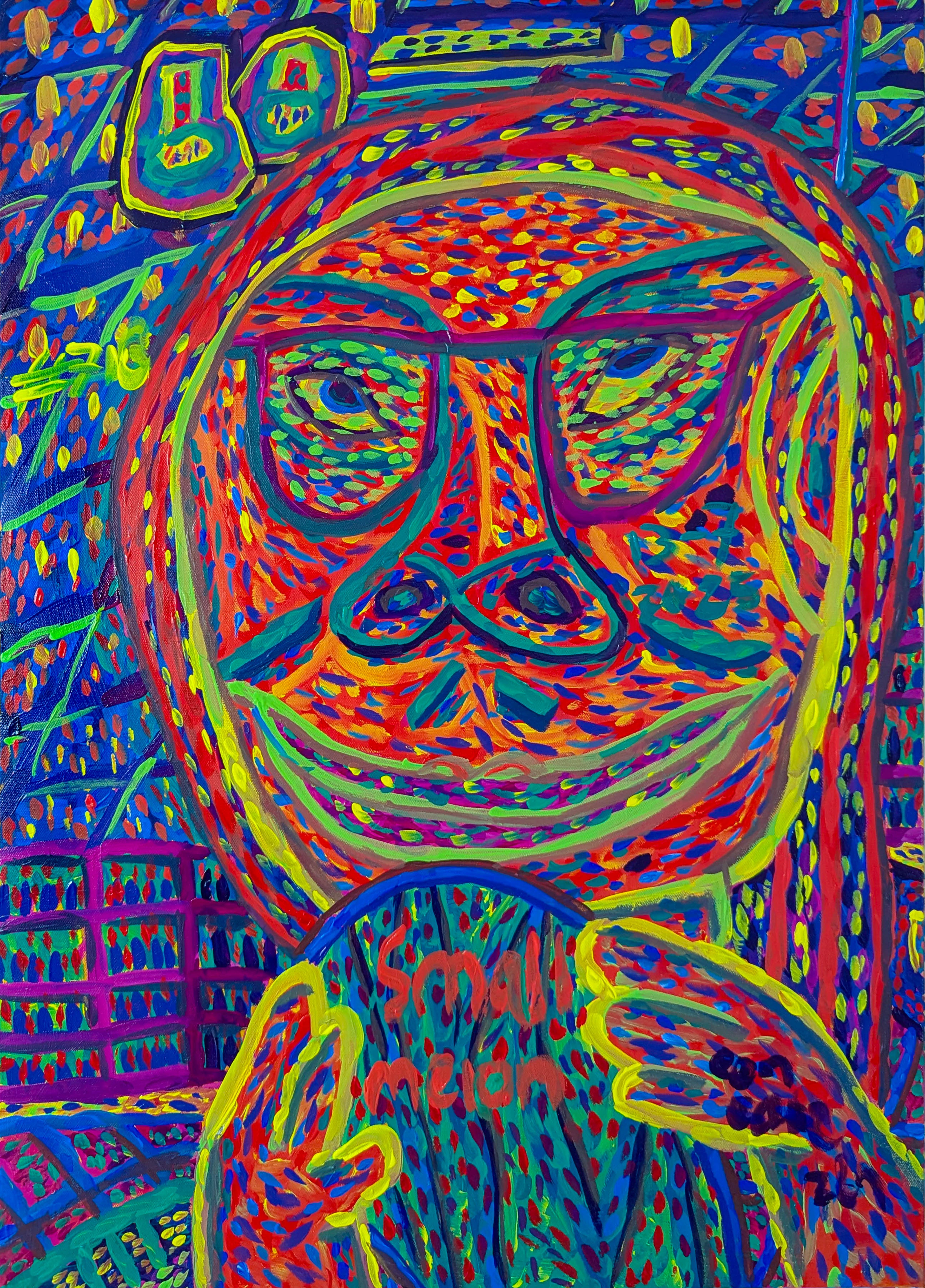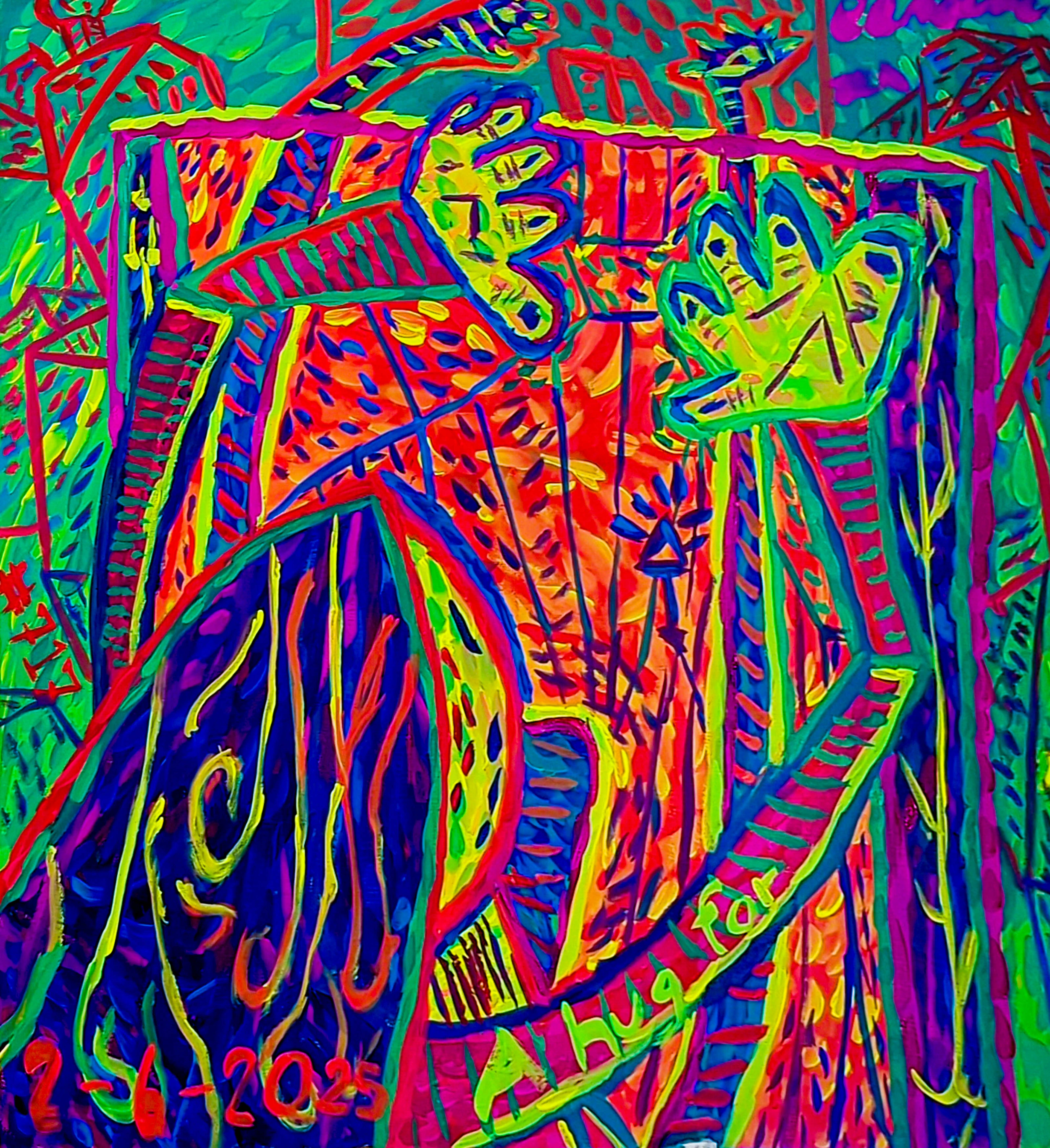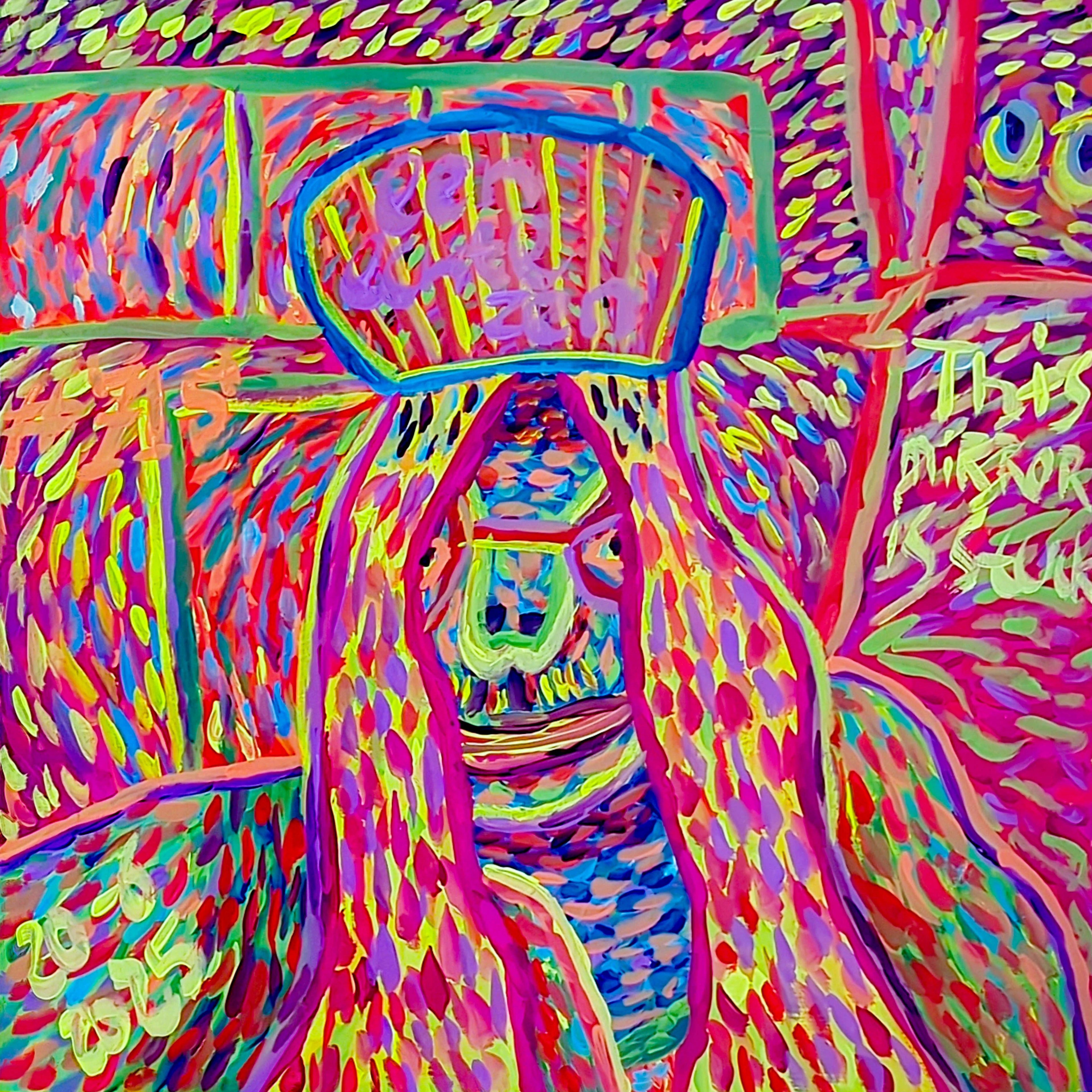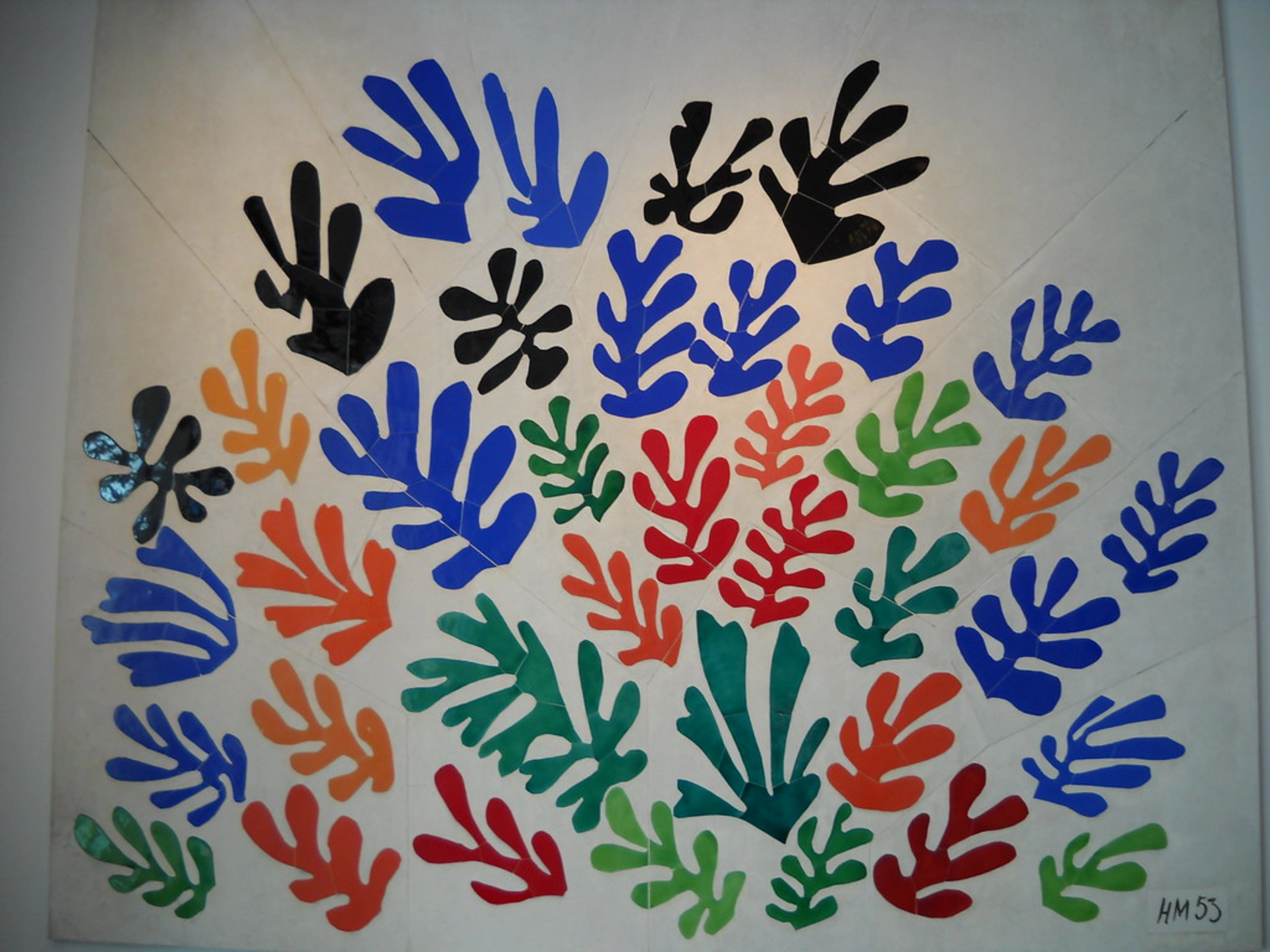
Curate Your Story: A Guide to the Narrative Gallery Wall
Unlock the power of personal storytelling through a narrative gallery wall. This guide explores the psychology of personal spaces, helps you uncover your unique story, and provides practical advice on collecting, arranging, and displaying diverse art and mementos to create an evolving, meaningful display.
Curating Your Narrative Gallery Wall: Your Story, Uniquely Told
My walls, I confess, used to be a monument to procrastination, or an artistic black hole where inspiration simply vanished. For what felt like eons, they were either starkly bare, or home to a single, forlorn print that, I swear, seemed to be actively retreating from the vast, intimidating canvas of white paint. Trying to arrange multiple pieces, to make them look right – not just aesthetically pleasing, but truly connected – felt like attempting to solve a visual jigsaw puzzle with half the pieces missing and the other half stubbornly refusing to speak to each other. It was a headache, and the results often felt impersonal, like those perfectly staged magazine rooms that are polished but utterly devoid of real soul. Then, a thought sparked: what if a gallery wall wasn't just about filling space, but about telling my story, a truly personal narrative? And just like that, the "puzzle" transformed. It became less about matching frames and more about connecting moments, weaving together a visual autobiography. This isn't just about hanging art; it's about curating a deeply personal visual autobiography on your wall, transforming your space into something that breathes you. In this guide, we'll explore why your walls deserve to tell your story, how to uncover those stories, the practical steps to bring your unique narrative gallery wall to life, and how it can evolve as you do. So, if you’re ready to dive in and let your walls become a vibrant extension of who you are, this guide is here to help you weave that unique story, transforming them from mere decoration into a living, breathing conversation.
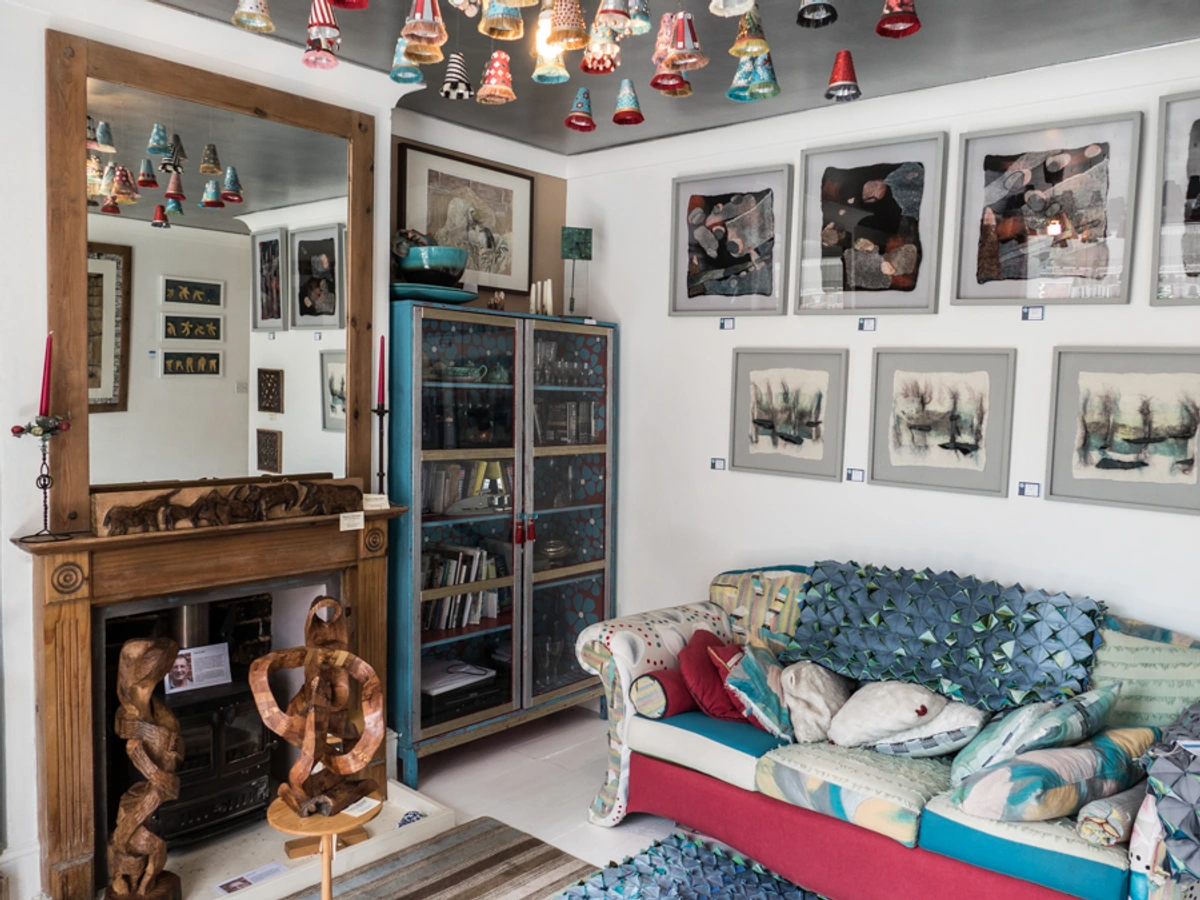
Beyond Decoration: What's Your Wall's Story? The Deep Human Need
So, why truly invest in a narrative gallery wall? Well, because every single one of us carries a story – a journey, a collection of memories, and aspirations that are uniquely ours. And our homes, I firmly believe, should be more than just shelter; they should be sanctuaries that reflect those stories. Who really wants to live in a sterile showroom, devoid of personality, where every surface feels temporary and interchangeable? More importantly, who wants a home that doesn't feel like theirs? Not me, and I bet not you either. I crave being surrounded by things that resonate, that spark a memory, or gently remind me of who I am and where I'm going. Personal spaces, I’ve found, act as vital anchors in a world that often feels increasingly generic and impersonal. They’re a counter-narrative to mass production, a quiet declaration of unique identity.
Historically, humans have always decorated their spaces with personal meaning. From cave paintings depicting hunts and spiritual beliefs to family crests and treasured heirlooms, our walls have consistently served as canvases for our stories. It’s a practice deeply rooted in our need to connect with our surroundings and imprint our individuality upon them. A narrative gallery wall is simply a modern, evolving extension of this ancient human impulse.
A personalized space isn’t just about pretty pictures; it’s a silent, constant affirmation of your identity, a subtle boost to your well-being. Think about it: a wall adorned with your story fosters a deep sense of belonging, reduces ambient stress by creating familiar comfort, and offers daily inspiration, all while triggering vivid memories and enhancing cognitive connections to your personal history. This taps into several fascinating areas of psychology.
There's "environmental psychology," which explores how our physical surroundings profoundly impact our mood, behavior, and even sense of self. A narrative wall creates an environment that actively supports your personal well-being by reflecting your inner world. Then there's a touch of "biophilic design," where elements reflecting personal history and the natural world connect you more deeply to your living space, leveraging our innate human drive to connect with nature and our past. It also cultivates a vital "sense of place," transforming a mere house into a home by imbuing it with personal meaning and connection, making your space feel truly unique and yours. And yes, it can even act as a subtle "coping mechanism," providing visual anchors of stability and comfort during life's inevitable ups and downs, a quiet reassurance on your toughest days. Beyond these, a truly personal space contributes to "self-concordance" – ensuring your external environment aligns with your intrinsic values and goals. By choosing pieces that genuinely resonate with your core beliefs, your wall becomes a powerful, if often subconscious, source of motivation and peace. Ultimately, it speaks to our fundamental human need for self-expression and identity, echoing concepts found even in Maslow's hierarchy, where self-actualization (the drive to become the best version of oneself) and esteem needs (feelings of accomplishment and respect) are profound motivators that a curated, personal space can powerfully support. Our walls, it turns out, can be powerful tools in that journey.
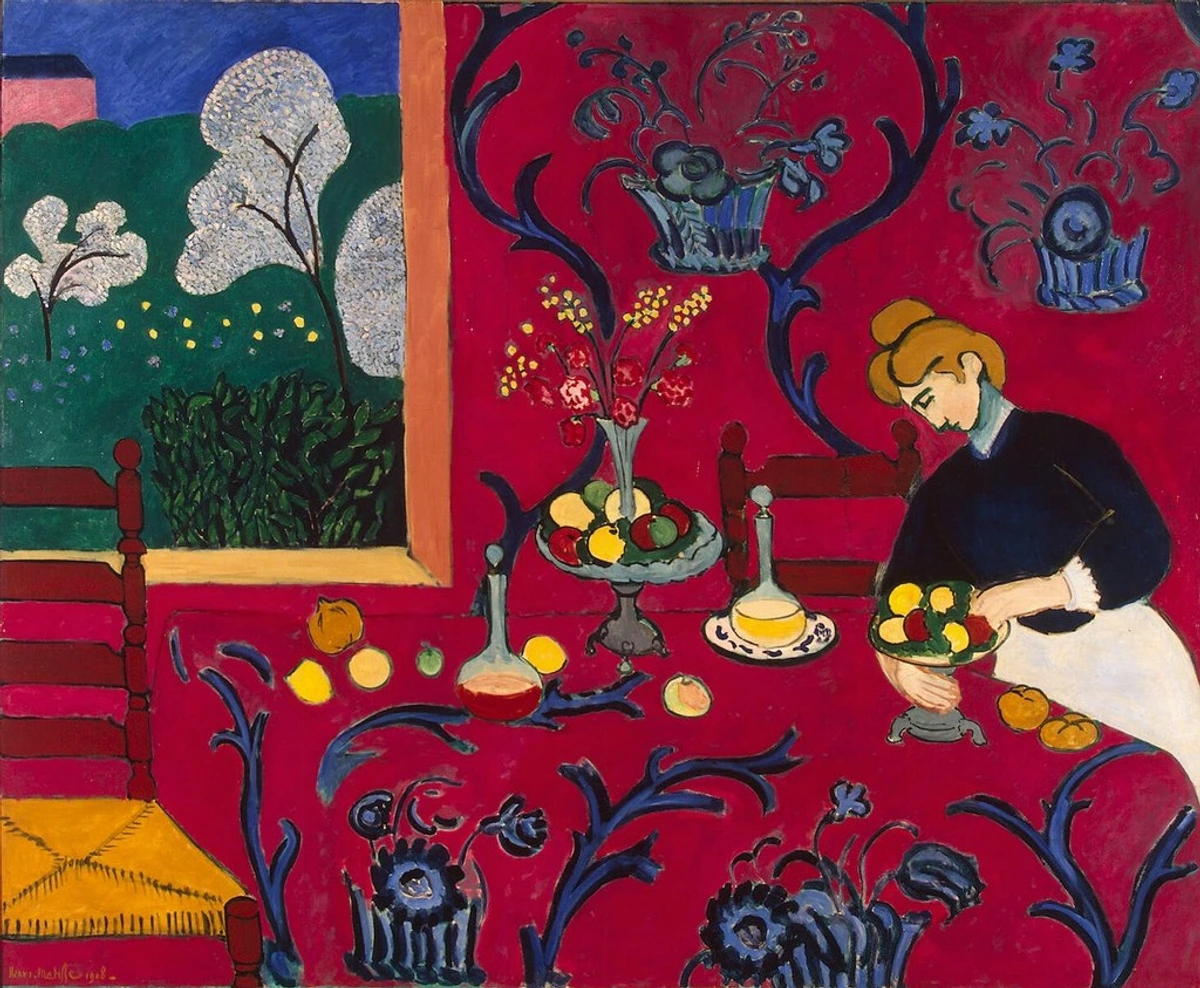
It’s like that feeling when you glance at an old photograph and suddenly you’re not just seeing it, you're back in that moment, smelling the salt air or hearing that specific laugh. A narrative gallery wall can do that, but with a broader, richer tapestry of visual cues. It transcends mere decor, becoming a living conversation piece – not just for guests, but for you every single day. What story does your space tell about you right now?
Finding Your Story: The Foundation of Your Wall
Now that we’ve truly anchored the profound 'why' behind a narrative wall – that deep human need for connection and self-expression – let's dive into the equally crucial 'how' – uncovering the stories that will actually fill your walls. This, to me, is where the real digging begins: a joyous excavation, a delightful rummage through your personal history, your aspirations, and even those delightfully quirky bits that make you you. I always start by getting wonderfully introspective. Grab a coffee (or whatever your thinking fuel is), find a quiet spot, and just... think. What are the defining chapters of your life? What places have indelibly shaped you? What passions relentlessly drive you? What are your wildest dreams, or the tiny daily joys that bring a smile? What makes you feel utterly calm, or what’s that silly inside joke only you and a select few truly understand?
Sometimes, my process feels a bit like a mental scavenger hunt, unearthing forgotten treasures. To help organize these unearthed gems, here's a little framework I use as a starting point:
Category | Reflect On... | Visual Cues (Examples) | Purpose/Intention Example |
|---|---|---|---|
| Milestones | Travels, accomplishments, new beginnings, family history. | Photos, maps, certificates, mementos, historical documents. | Commemorate growth |
| Emotions | Joy, peace, ambition, solace, curiosity. | Colors, abstract forms, landscapes, inspirational quotes, personal symbols. | Evoke calm joy |
| Influences | Inspirations (artists, ideas), values, dreams, cultural background, heritage. | Quotes, symbolic art, portraits, representations of nature or concepts. | Inspire creativity |
| Color Palettes | Favorite colors, schemes that speak to your soul, specific color combinations from memories. | Artworks with dominant colors, textiles, color swatches, natural elements, even painted swatches of colors from a significant room or landscape. | Recall cherished memories |
| Purpose/Intention | What is the overarching feeling or message? This is the guiding principle that informs all your visual choices. | (Joy, commemoration, self-expression, remembrance, or a gentle reminder of who you are and where you're headed.) | Reinforce personal values |
This table isn't rigid, of course, but it’s a wonderful springboard to kickstart your creative journey and identify core narrative threads. For instance, the 'Color Palettes' category is far more powerful than simply picking a pretty hue. I've found that certain colors are practically shorthand for entire emotional chapters. Maybe the deep blues and greens of a coastal landscape bring back the peace of a childhood vacation, or the fiery oranges and reds ignite the ambition of a new creative project. Don't underestimate the psychological power of color in abstract art; it's a silent storyteller in its own right. For example, if your intention is to 'evoke calm,' you might gravitate towards art with soft blues, muted greens, and flowing lines, much like a tranquil seascape. If it's 'to inspire creativity,' bold, contrasting colors and dynamic abstract forms might be your chosen visual language. You might even find it useful to explore the psychology of color in abstract art beyond basic hues to deepen your understanding.
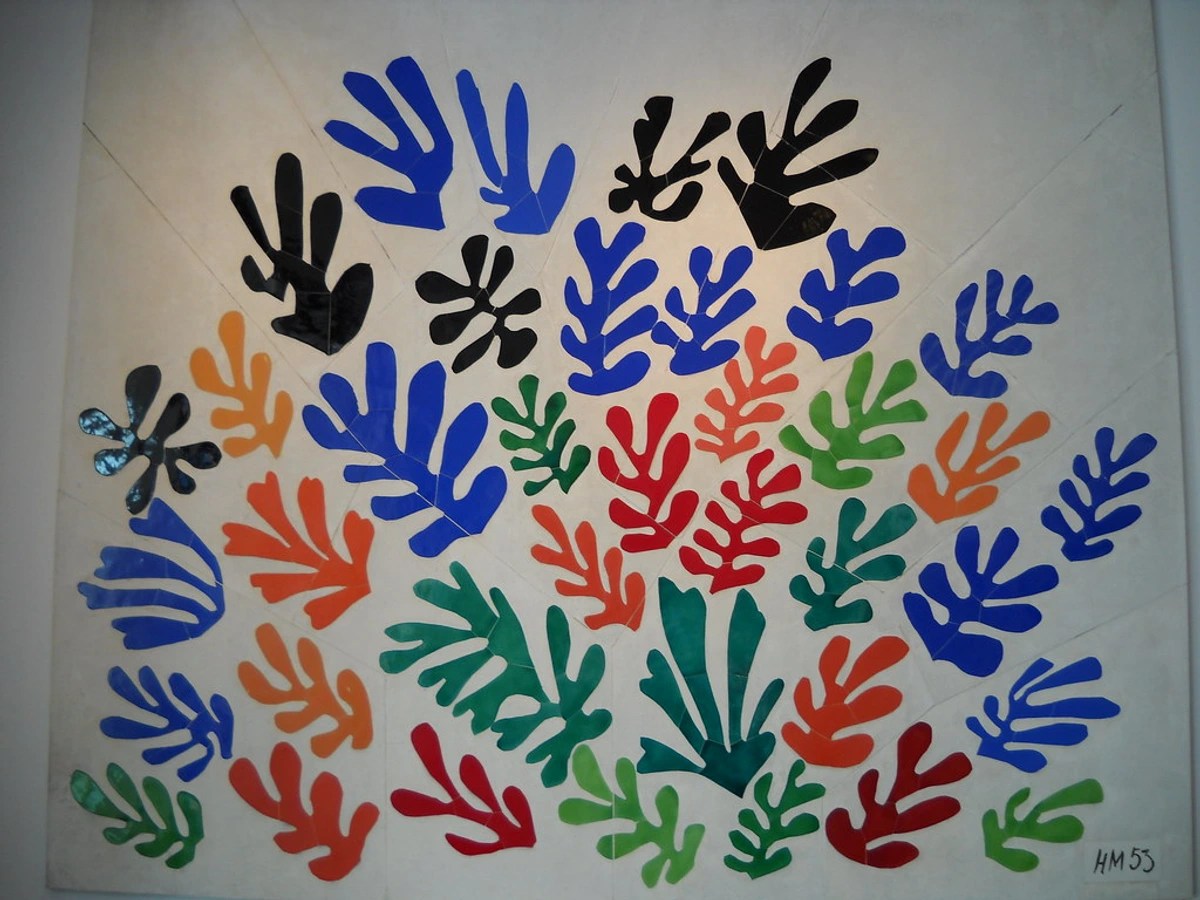
Finding the Narrative in the Everyday
But sometimes, our stories aren't grand sagas, are they? Often, the truest narratives lie hidden in the everyday, the quiet corners of our lives. I know what some of you might be thinking, and it’s a perfectly valid thought: "My life isn't full of dramatic world travels or grand, headline-grabbing achievements; how do I possibly tell a story that feels worthy of a wall?" And to that, I say with absolute conviction: your story is precisely in the everyday! It's in the quiet morning coffee, the messy joy of family life, the beloved (if slightly worn) objects that bring comfort and continuity. Your narrative wall doesn't need to be a highlight reel of extraordinary events; it can, and often should, be a loving homage to the ordinary moments, the small victories, the consistent passions that shape your daily existence. A framed snippet of a child's first drawing, a carefully preserved concert ticket from a local band, or even a photograph of your favorite cozy reading nook can hold immense narrative power. It's about finding the meaning in these moments, not just their scale. It’s about celebrating the subtle richness of your personal tapestry.
Thematic Cohesion vs. Eclectic Storytelling: Finding Your Wall's Harmony
This is where the magic (and sometimes, the delightfully unpredictable chaos) happens. Your narrative wall isn't a museum exhibit (unless, of course, your story is about museums, in which case, carry on!). It's a living collection, a vibrant conversation. So, how do you make a rustic piece of driftwood, a faded concert ticket, and a bold abstract painting sing together in chorus? It’s not about strict uniformity, but about finding a harmonious undercurrent, a subtle narrative thread that weaves through them all. To discover this thread, you might try a little brainstorming exercise: start by asking yourself, "What core emotion or value do I want this collection to evoke?" Is it joy, resilience, curiosity, or peace? Once you have that anchor, selecting and arranging pieces that feel right, regardless of style or origin, becomes much more intuitive.
Imagine, for a moment, a wall where a hyper-realistic portrait of a dog stares blankly at a neon abstract sculpture, while a sepia-toned botanical print awkwardly floats between them, all framed in jarringly different styles. It wouldn't feel like a conversation; it would feel like a shouting match at a very confused party. The goal, instead, is cohesion. This thread could be a shared, subtle color palette, a recurring motif (perhaps a nature theme connecting travel photos with a botanical print and abstract art inspired by organic forms), or even a shared emotional resonance – everything on the wall might evoke calm joy, fierce ambition, or quiet contemplation, regardless of its individual style. Don't get hung up on every piece being perfectly matched; worry about every piece being perfectly you. For instance, a vintage map symbolizing wanderlust could sit beside a sepia-toned photograph of a family member who also loved to travel, unified by a small, framed pressed flower from a journey, all within a natural wood frame, creating a subtle thread of exploration and connection to nature. An abstract artwork, perhaps with dynamic sweeping lines in blues and greens, could subtly link a serene coastal photograph with a piece of driftwood, its fluid forms echoing the natural elements and creating an unexpected dialogue between the organic and the painted. The key is finding that visual whisper that says, "These belong together, because they all speak to me."
Or, imagine a dynamic abstract painting with sweeping lines and energetic splashes. This could beautifully converse with a photograph capturing a dancer in motion, and a flowing, almost sculptural textile piece. Here, the unifying theme isn't color or subject matter, but a shared sense of movement and energy. The goal is to create a delightful conversation among disparate elements, where each piece, unique as it is, contributes meaningfully to the overall narrative. So, as you ponder these threads, what are the first 'chapters' that instantly come to mind for your own story? Ultimately, a cohesive narrative emerges not from uniformity, but from a thoughtful curation of pieces that, despite their differences, tell a unified and personal story about you.
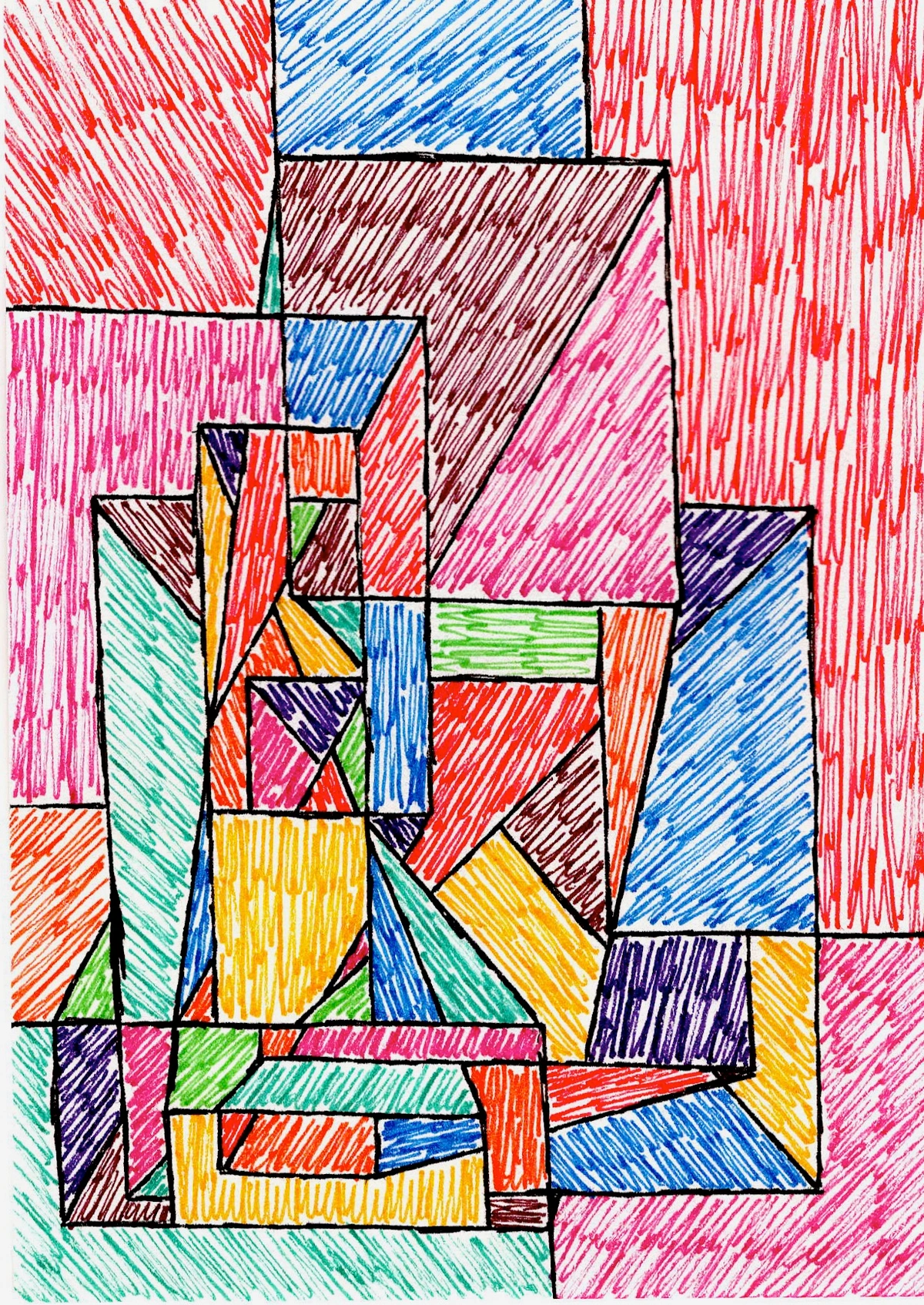
credit, licence
Translating the Intangible: From Feeling to Form
Sometimes, our stories aren’t clear-cut events but rather elusive, abstract feelings or powerful aspirations. How, I often wonder, do you give tangible shape to wanderlust, a feeling of quiet ambition, or the subtle memory of a specific scent? This is precisely where brainstorming becomes your best friend, and where abstract art can become your most eloquent ally. I often start by creating a mood board—whether it's a physical collage of cuttings or a digital collection of pins. I'll gather images, textures, colors, and even snippets of text that simply evoke that feeling. Or perhaps a mind map, starting with a core emotion and branching out to memories, places, or symbols associated with it. The key here is not to overthink it; just gather, freely and playfully. What color instantly transports you back to a cherished memory?
Let's take "quiet ambition." How to visualize that? You might start by thinking about the feeling of quiet ambition: focused energy, steady progress, perhaps a sense of calm determination. This could translate into a piece of abstract art featuring strong, ascending diagonal lines and a muted but purposeful color palette. Think of early Abstract Expressionists like Mark Rothko for contemplative color fields, or Minimalists like Agnes Martin for subtle, resolute lines. Or perhaps a minimalist photograph of a solitary mountain peak, symbolizing a long-term goal. For the memory of a cherished scent, say, of old books and autumn leaves, you might opt for sepia-toned prints, pressed leaves, or an abstract piece with earthy tones and textured layers that evoke paper and natural decay. Wanderlust, as another example, might beautifully translate to vintage maps, sepia-toned travel photos, or a piece of abstract art with flowing, dynamic lines and earthy colors that suggest movement and vast horizons. Here, artists like Henri Matisse (especially his cut-outs) or Joan Miró for their organic, playful forms can offer inspiration. For a feeling of profound peace, I often gravitate towards soft pastels, calming landscapes (perhaps Impressionist works), or minimalist abstract forms.
Abstract art, in particular, excels at conveying mood and emotion without literal representation, making it an incredibly powerful tool for visual storytelling. If you're curious about how artists achieve this, exploring visual storytelling techniques in narrative art can offer fascinating insights.
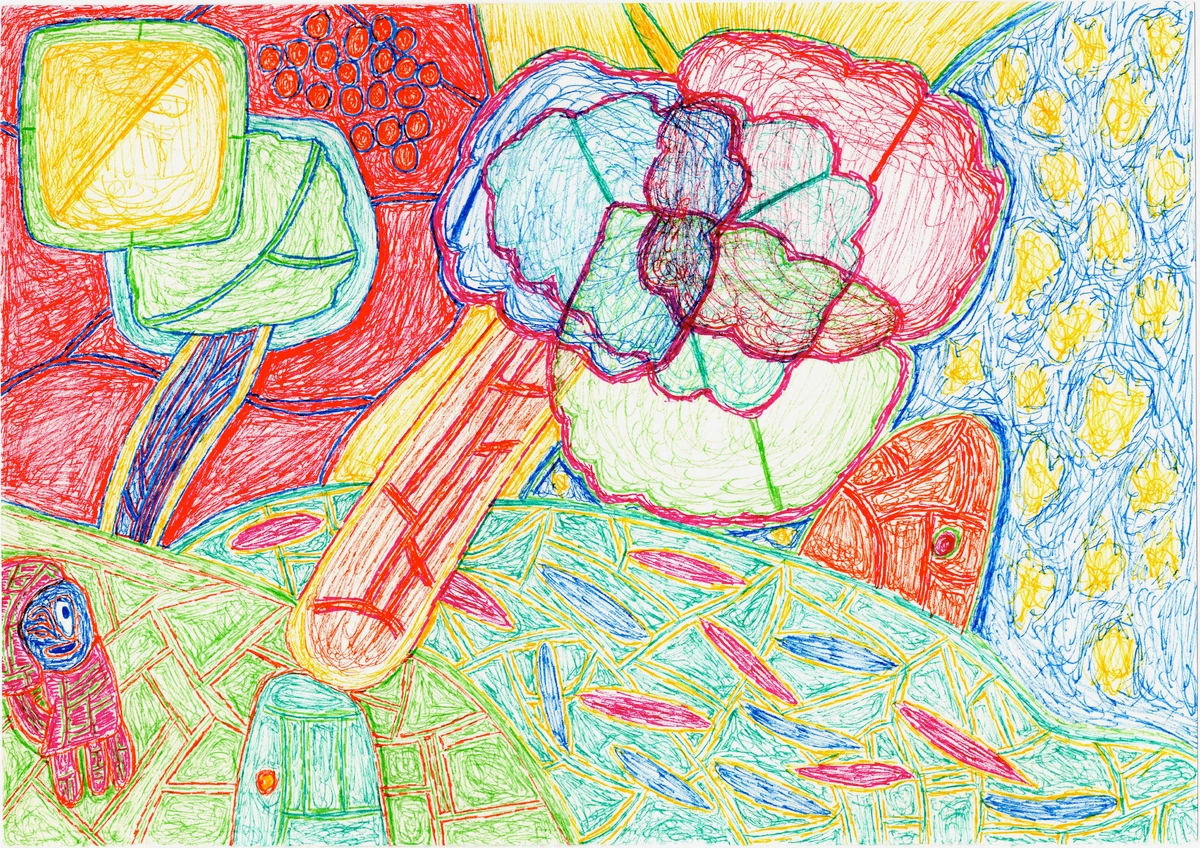
credit, licence
So, with your story’s essence captured and feelings given form, it’s time to bring those intangible memories and aspirations into tangible existence – gathering the actual pieces that will adorn your wall. This, my friend, is where the treasure hunt truly begins.
Gathering Your Elements: Pieces of Your Narrative
Now for the truly exciting part, the treasure hunt itself: collecting the actual elements for your wall. This is where you can truly let your personality shimmer and shine. Please, whatever you do, don't limit yourself to just paintings or standard prints. This is your story, after all, so think gloriously and perhaps a little madly, outside the traditional frame!
Considering Scale and Flow
Before diving headfirst into collecting, take a moment to consider the overall scale. Think about the size of your wall and the general size of your room. A tiny trinket, however meaningful, might get lost on a vast wall unless thoughtfully grouped. Conversely, a few oversized pieces might overwhelm a smaller space. The trick is to find a pleasing variety of scales that work together, creating a visual rhythm. My own approach is to envision the 'flow' – does your eye have enough to feast on without feeling overwhelmed? And are there moments of pause, like quiet stretches in a song?
Elements to Consider

credit, licence
- Art Prints & Paintings: Naturally, these are staples. But think deeply about the kind of art that resonates. Do abstract geometric pieces speak to your sense of order amidst chaos, a beautiful tension I often find in my own work as I strive to find structure and narrative within vibrant compositions? Perhaps vibrant, expressive works mirror your inner energy? You might even find something that truly resonates in my own collection here, just saying – a piece that feels like a visual echo of your own narrative.
- Photographs: Personal photos are incredibly powerful. Consider mixing black and white shots with vibrant color memories, or old family daguerreotypes with crisp modern travel pics. The contrast itself can be a narrative element, highlighting a beautiful journey through time or personal growth.
- Textile Art: Small tapestries, beautifully embroidered pieces, or even a framed swatch of meaningful fabric (perhaps from an old heirloom or a cherished outfit) can add incredible texture and warmth, literally weaving a layer of softness into your story. For textiles, consider floating mounts or shadow boxes to preserve delicate fibers and create depth.
- Mementos & Objects: This is where things get really personal! Think beyond flat images. Small mirrors, vintage postcards from places you’ve dreamed of (or been!), concert tickets from a pivotal show, pressed flowers from a significant date, even a unique spoon from a memorable trip – anything that holds personal significance. Framing these unconventional items can be surprisingly impactful. A shadow box can be your absolute best friend here, allowing you to display three-dimensional treasures securely and aesthetically. Specific examples include antique keys, small, beautifully worn tools that belonged to a family member, or unique pieces of pottery. Anything that sparks a story in you is fair game.
- Quotes & Typography: A beautifully rendered quote that inspires you, a line from a cherished poem, or a handwritten note from a loved one can be a profoundly moving addition.
- Found Objects: A cool piece of driftwood from a favorite beach, a smooth stone picked up during a meditative walk, an interesting feather, or a striking dried leaf. Nature's art is deeply personal for many, connecting us to grounding experiences.
The key here, I've found, is glorious variety, not bland uniformity. The magic truly happens when different textures, styles, and individual stories converge into a harmonious whole. It’s less about a perfectly matched set and more about a symphony of individual voices, each playing its part in your overarching narrative.
What unique, unexpected items are you thinking of including in your own narrative?
Sourcing Your Treasures
So, where do all these wonderful bits of your story come from? Don't forget local antique shops, quirky flea markets, online marketplaces like Etsy for unique handmade pieces, specialized online archives for vintage postcards, or local artisan fairs where you can unearth unexpected gems with their own stories waiting to be adopted into yours. Sometimes, the hunt itself becomes part of the narrative!
Budgeting for Your Narrative Wall
Let’s be real, art can be expensive, and building a meaningful collection takes time and resources. But a narrative gallery wall doesn’t have to break the bank! My secret? Mix high and low. Invest in one or two pieces that truly speak to your soul, then balance them with more affordable options. Think about sourcing high-quality art prints instead of original paintings, or explore local art schools where emerging artists often sell their work at accessible prices. Don't underestimate the power of DIY – framing a beautiful fabric scrap or a child's drawing costs very little but holds immense personal value. Thrift stores and flea markets are treasure troves for unique frames and forgotten pieces that, with a little love, can become powerful storytellers. The goal is personal resonance, not price tag.
Digital Art & NFTs: The Future of Your Wall's Story?
In our increasingly digital world, your narrative wall doesn't have to be limited to physical objects. Digital art, including NFTs (Non-Fungible Tokens), offers a fascinating new frontier for visual storytelling. Imagine a high-resolution digital frame displaying a curated collection of digital art that resonates with your narrative, or even a cherished NFT that marks a significant moment in your digital journey. This allows for dynamic, ever-changing displays that can reflect your current mood, aspirations, or even the latest chapter of your life without having to re-hang a single physical piece. It's a modern way to weave your story, offering endless possibilities for evolution and expression, and for those who enjoy the abstract, it’s a perfect fit for a vibrant, contemporary aesthetic.
Conservation and Ethical Considerations
For delicate items like pressed flowers or cherished old photographs, consider archival framing techniques with UV-protective glass and acid-free mats to prevent fading, yellowing, and degradation over time, ensuring your memories endure for generations. Textiles may require special mounts to prevent stretching or damage. For objects, mounting small, lightweight sculptures or keys on sturdy, clear acrylic stands within a shadow box, or using discreet museum putty for items on a shelf is often effective. For objects too large for a shadow box, consider elegantly simple floating shelves or custom-made, unobtrusive wall mounts that allow the object itself to be the star.
On an ethical note, always be mindful when displaying photos or personal items that involve other people; ensure you have their implicit or explicit consent, especially if the items are very private. And when incorporating found objects or artwork by others, respect intellectual property. A brief, discreet label acknowledging the artist or source is a thoughtful touch. Respect for others' privacy and creativity should always be part of your narrative, too.
Handling Emotionally Charged Pieces
Sometimes, certain items carry deep emotional weight – perhaps a photograph of a loved one who is no longer with us, or an object reminding you of a challenging but transformative period. My advice here is to approach these pieces with gentle intentionality. Ask yourself if displaying them brings comfort, inspiration, or a sense of peace. If an item feels too raw or triggers distress, it's perfectly okay to omit it from your public display or to place it in a more private space. A narrative wall should uplift you, not weigh you down. Alternatively, you might choose to include it but surround it with elements that offer solace or perspective, creating a visual balance of emotion. Sometimes, simply documenting the story behind such a piece in a small, accompanying journal, a discreet label, or even a QR code linking to a digital story can be a powerful way to process and integrate its significance, even if the item itself remains in a private space or is displayed in a more abstract, symbolic form. Displaying symbols of challenges overcome can even be a powerful act of post-traumatic growth, a visual testament to your resilience. Another option is a dedicated "memory box" where highly personal or ephemeral items can be safely stored and revisited when you feel ready. This is your story, and you get to decide how it's told and how it makes you feel.
The Art of Arrangement: Making Sense of the Beautiful Chaos
Alright, you’ve meticulously gathered your treasures, the fragments of your story. Now comes the thrilling (and sometimes, slightly terrifying) moment of truth: putting it all together. This stage can often feel like trying to conduct an orchestra where every instrument wants to play a different, glorious tune, and you're the slightly bewildered maestro. My personal, battle-tested advice? Do not start hammering nails immediately. Trust me on this; I've learned this lesson the hard way, many times over, leading to many a wall repair patch that I'd rather not discuss.
Step 1: The Floor Test (My Personal Lifesaver & Design Playground)
Lay everything out on the floor. Seriously, this is my absolute go-to method, a truly essential first date with your future wall. It’s low-stakes, incredibly forgiving, and you can move things around endlessly without patching a single nail hole (a personal pet peeve that still makes my eye twitch). Prepare for your floor to become a temporary, albeit beautifully chaotic, art studio – my dog, bless his enthusiastic heart, would probably try to 'help' by rearranging things with his nose, adding his own unexpected layer to the narrative, I suppose! This is where you play, experiment, and even make glorious mistakes that lead to brilliant discoveries.
- Start with a Central Piece: I usually pick my absolute favorite, or the largest, or simply the one that feels like the emotional anchor of my story. Place it roughly where you envision the visual center of your wall.
- Branch Out: Gradually add pieces around it, playing with different configurations. Think about visual balance – avoid putting all the 'heavy' (visually impactful) pieces on one side. I often find myself shifting a larger piece to balance a cluster of smaller, intensely colorful ones, or adding a dark-toned piece to ground a lighter section.
- Vary Shapes & Sizes: Resist the urge to create a perfect grid, unless that's an explicit part of your aesthetic (and narrative!). Mix portraits with landscapes, squares with rectangles, even add in those delightful irregular shapes from your mementos. This variation is what truly creates dynamic visual interest and prevents monotony.
- The Power of Negative Space: This is crucial, and it’s something I always emphasize. Don’t cram everything together. Allow for generous breathing room between pieces. This "negative space," this "empty" space, isn't just absence; it's a deliberate design element, almost like the silence between musical notes that allows each melody to truly resonate. It allows each artwork to breathe, to resonate more deeply, and crucially, it prevents visual fatigue and that dreaded feeling of overwhelm – it's the intentional quiet that makes the voices sing. A good rule of thumb? Imagine a visual


